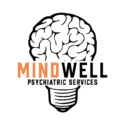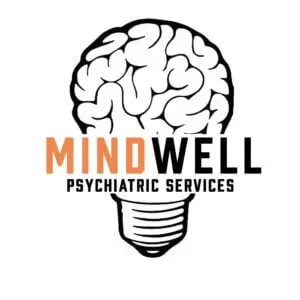PTSD stands for Post-Traumatic Stress Disorder. It’s what some people feel after a very scary event, like a car crash or a big storm. They might have nightmares, feel sad or scared a lot, or get startled easily. But there’s good news – it can get better. In places like Las Vegas, there are psychiatrists who know a lot about PTSD and how to help people heal.
Mindwell Psychiatric Services is one of those places in Las Vegas with experts ready to help. They listen and use their knowledge to help you feel more like yourself again. Remember, asking for help is a strong and brave thing to do.
What is PTSD?
Post-Traumatic Stress Disorder, or PTSD, is a condition that some people develop after experiencing something very scary or shocking. Unlike a brief moment of fear, PTSD lasts much longer and can seriously disrupt a person’s life. It’s like the brain keeps reliving the scary moment, making it hard for someone to feel safe again.
It Can Happen to Anyone
Many think PTSD only affects soldiers or first responders. But in reality, it can happen to anyone, no matter their job, age, or lifestyle. Car accidents, natural disasters, or sudden loss of a loved one are common causes. So, it’s important to know that if you’re feeling this way, you’re not alone.
People with PTSD may have nightmares or flashbacks to the traumatic event. They might try to avoid anything that reminds them of that time. They could feel sad, angry, or numb, finding it hard to enjoy things they used to like. Some feel jittery or on edge, always looking out for danger.
Why It's Different
PTSD is different from other mental health issues because it directly follows a traumatic event. While other conditions can develop without a clear reason, PTSD always has a specific cause. This is what makes treating it both unique and challenging.
Causes and Common Myths
PTSD can be caused by any event that makes someone fear for their life or safety. It’s not a sign of weakness, and not everyone who goes through a tough time will get PTSD. It’s about how a person’s brain responds to extreme stress.
The Role of Mindwell Psychiatric Services
At Mindwell Psychiatric Services, understanding and treating PTSD is what we do. Mindwell, including some of the most caring psychiatrists in Las Vegas, specializes in helping people through their darkest times. We know that with the right support and treatment, healing is possible.
Facts About PTSD
Post-Traumatic Stress Disorder (PTSD) is when people have a hard time recovering after experiencing or seeing something very scary or shocking. It’s like their mind gets stuck in that scary moment, making them feel anxious, scared, or upset even when they’re safe.
How Many People Have PTSD?
You might be surprised to learn that PTSD affects a lot of people. In the United States, about 7 out of every 100 people will have PTSD at some point in their lives. That means in a town of 10,000 people, up to 700 of them could experience PTSD. This shows us how important it is to understand and help those with PTSD.
Early Help Makes a Big Difference
Finding help early can make a big change for someone with PTSD. Getting the right support, like talking to a therapist or taking medicine, can help people feel better much sooner. This is why it’s so important to talk about PTSD and not keep it a secret.
In places like Las Vegas, NV, experts at Nevada Mental Health and facilities like Mindwell Psychiatric Services are ready to help. They know a lot about the Medication and Management in Las Vegas, NV that can help calm the feelings of PTSD and how to manage them safely. They work closely with each person to find the best plan for them.
Why Awareness Is Key
PTSD can be caused by any event that makes someone fear for their life or safety. It’s not a sign of weakness, and not everyone who goes through a tough time will get PTSD. It’s about how a person’s brain responds to extreme stress.
What Leads to PTSD?
Life Experiences
People who have seen or lived through something very scary, like a bad accident, a natural disaster, or being hurt by someone, might get PTSD. It doesn’t happen to everyone, but some situations make it more likely.
Jobs That See Trauma
Soldiers, firefighters, and police officers see scary things as part of their jobs. This can make PTSD more likely for them.
Having Other Problems
Sometimes, having other worries like feeling very sad (depression) or being very nervous (anxiety) can make a person more likely to get PTSD after a scary event.
Family History
Just like how some illnesses can run in families, PTSD can be more common in some families. If family members have had PTSD or other mental health issues, it might make you more likely to have PTSD too.
Stressful Life
If someone has a lot of stress in their life, like losing a job or not having a place to live, it can make it harder to deal with scary events.
Types of PTSD
Normal Stress Response
This can happen after any scary event. It usually gets better with time and care from friends and family.
Acute Stress Disorder
This happens right after the trauma and can last up to a month. It’s like a short-term type of PTSD.
Uncomplicated PTSD
This type involves the symptoms mentioned but is tied to one major traumatic event.
Complex PTSD
This can happen from ongoing trauma, like abuse. It can make relationships and emotions very hard to manage.
Comorbid PTSD
This is when PTSD happens along with other problems like depression or substance abuse.
Symptoms of PTSD
Post-Traumatic Stress Disorder (PTSD) can manifest differently in individuals, and its symptoms can vary in intensity and duration. PTSD typically occurs as a response to a traumatic event or series of events and can affect various aspects of a person’s life.
Common symptoms of PTSD can include:
Intrusive Memories
Individuals with PTSD often experience distressing and intrusive memories of the traumatic event. These can be in the form of flashbacks, nightmares, or distressing thoughts.
Avoidance
People with PTSD may go to great lengths to avoid reminders of the traumatic event. So, this can include avoiding certain places, people, conversations, or activities that trigger distressing memories.
Negative Changes in Thinking and Mood
Individuals with PTSD may experience persistent negative thoughts and emotions related to the trauma. In other words, this can manifest as feelings of guilt, shame, anger, or a sense of detachment from others. They may also have difficulty experiencing
positive emotions.
Increased Arousal
PTSD can lead to increased arousal and reactivity. Also, this may include difficulty sleeping, irritability, anger outbursts, difficulty concentrating, and being easily startled.
Hypervigilance
Some individuals with PTSD may constantly feel on edge or hypervigilant, always scanning their environment for potential threats. This heightened state of alertness can be exhausting and interfere with daily functioning.
Emotional Numbing
Some individuals with PTSD may become emotionally numb or detached from others as a way to cope with their trauma. So, they might have difficulty expressing their feelings or connecting with loved ones.
Physical Symptoms
PTSD can sometimes manifest with physical symptoms such as headaches, stomachaches, and muscle tension.
Dissociation
In severe cases, individuals with PTSD may experience episodes of dissociation, where they feel disconnected from their own body or have an altered sense of reality.
It’s important to note that not everyone who experiences trauma will develop PTSD, and the severity and duration of symptoms can vary. Some individuals may experience acute symptoms shortly after the traumatic event and then recover, while others may develop chronic PTSD that lasts for years.
PTSD can significantly impact a person’s quality of life, relationships, and overall well-being.
In addition, if you or someone you know is experiencing symptoms of PTSD, it’s important to seek help from a mental health professional. Treatment options, including therapy (such as cognitive-behavioral therapy or exposure therapy) and sometimes Medication prescription and management in Las Vegas, NV, can be effective in managing and reducing PTSD symptoms.
Healing PTSD with Mindwell Psychiatric Services
At Mindwell Psychiatric Services, we know each person’s journey with PTSD is unique. That’s why we offer personalized treatment plans. This means we listen carefully to your story and tailor our help to fit you best.
Therapy
Cognitive Behavioral Therapy (CBT)
A way to help you manage your PTSD by changing the way you think and behave. Also, it’s like rewiring your brain to handle fear and stress better.
EMDR (Eye Movement Desensitization and Reprocessing)
This therapy uses eye movements to help you process and make peace with your trauma. It might sound unusual, but it has helped many people move past their PTSD.
Group Therapy
Sometimes, talking with others who understand what you’re going through can make a big difference. So, group therapy provides a safe space to share experiences and learn from each other.
Medication
Medicines can’t erase memories, but they can make them easier to live with. They can help with sleep, anxiety, and those moments of feeling really down or on edge. At Mindwell, we use medication as one part of a bigger plan, making sure it fits just right for you.
Holistic Approaches
Mindfulness and Meditation
Learning to stay in the moment can help calm the storm inside. For instance, we teach techniques to bring you peace and focus.
Yoga
It’s not just good for your body but your mind too. Also, yoga can help you feel more connected and balanced.
Art and Music Therapy
Sometimes, words aren’t enough. Music and art therapy let you express your feelings in a different, but very powerful way.
Expert Care, Every Step of the Way
Mindwell Psychiatric Services isn’t just skilled in their fields, they’re compassionate and dedicated to your recovery. So, they keep up with the latest in PTSD treatment to offer you the best care.
Your Partner in Healing
From the first day you reach out to us, we’re by your side. We understand the courage it takes to ask for help. Mindwell is more than just a clinic; we’re your partner in healing, offering support, understanding, and the best of care on your journey to recovery.
Handling PTSD is hard, but you’re not alone. At Mindwell Psychiatric Services, we offer many kinds of help that we can adjust just for you. This includes talking with a therapist, taking medicine, or trying natural ways to get better. So, taking the first step to ask for help shows you’re strong. Most importantly, we want to help you on your way to a calmer mind and life.
In addition, we start with a special check-up like Psychiatric Evaluation and Diagnosis in Las Vegas, NV to understand your feelings and needs. This way, we can find the best way to help you.
The Positive Impact of PTSD Treatment on Work and Relationships
Early intervention and support are essential for improving outcomes for individuals with PTSD. When PTSD is properly treated, a person’s work life and relationships can improve significantly, and they can experience a better overall quality of life.
Therefore, here’s how treatment can positively impact these areas:
Work Life:
- Improved Concentration and Productivity: Effective treatment, often involving therapy and sometimes medication, can help individuals manage and reduce PTSD symptoms like intrusive thoughts and hypervigilance. Also, this can lead to improved concentration and productivity at work.
- Reduced Absenteeism: As symptoms become more manageable, individuals are less likely to miss work due to the debilitating effects of PTSD. So, treatment can help people regain a sense of control over their lives and responsibilities.
- Enhanced Coping Skills: Therapy, especially cognitive-behavioral therapy (CBT) and exposure therapy, can equip individuals with better coping mechanisms to handle stress and triggers related to their trauma. This can lead to a more adaptive response to workplace stressors.
- Better Workplace Relationships: Improved emotional regulation and communication skills can result from therapy, which can contribute to healthier relationships with coworkers and supervisors. Individuals with PTSD may also feel more comfortable seeking support and accommodations from their employer.
- Career Advancement: As individuals with treated PTSD become more stable and confident, they may be better positioned to pursue career goals and opportunities they may have previously felt were out of reach.
Relationships:
- Improved Intimacy: PTSD symptoms can strain intimate relationships. After that, treatment can help individuals manage emotional numbness, anger, and avoidance, making it easier to connect emotionally with their partners and rebuild intimacy.
- Better Communication: Therapy often includes strategies for improving communication and conflict resolution skills, which can lead to healthier interactions with loved ones.
- Reduced Isolation: Many people with PTSD isolate themselves due to avoidance behaviors. For instance, effective treatment can help individuals gradually reintegrate into social activities and reconnect with friends and family.
- Enhanced Trust: Treatment can help individuals address trust issues that often arise in relationships affected by trauma. Also, as they learn to trust themselves and their partners, their relationships can become more stable and fulfilling.
- Reduced Caregiver Burden: For those who support individuals with PTSD, such as family members or partners, treatment can lead to reduced caregiver burden. As the person with PTSD becomes more self-reliant and self-regulated, caregivers may experience less stress and anxiety.
It’s important to note that the progress and outcomes of treatment can vary from person to person. So, the support of loved ones and the involvement of a qualified mental health professional are crucial components of successful treatment.
Additionally, the process of healing and recovery from PTSD may
take time, and setbacks can occur. However, with proper treatment and a supportive environment, many individuals with PTSD can lead fulfilling lives and enjoy healthier relationships and work experiences.
Conclusion
Having PTSD is hard, but you don’t have to deal with it by yourself. There are ways to start feeling better, and asking for help is a strong first step. Talking about what you’re going through and sometimes using medicine can really help.
In addition, Mindwell Psychiatric Services wants to help you heal. We listen to what you need and help you in a way that works best for you. Above all, asking for help shows you’re strong, and Mindwell is here to help you find your way back to feeling good.
FAQs
PTSD stands for Post-Traumatic Stress Disorder. It’s when someone feels scared, sad, or upset for a long time after something very bad or scary happens to them. They might have nightmares, feel jumpy, or not want to do things they used to enjoy.
Yes, people can get better from PTSD. With the right help, like talking to a therapist or sometimes taking medicine, many people start to feel more like themselves again. It might take some time, but getting help is the first step to feeling better.
If you’ve gone through something really scary and you keep feeling upset, have bad dreams about it, or don’t want to do things you used to like, you might have PTSD. After that, the best way to know for sure is to talk to someone who knows a lot about it, like a doctor or therapist.
There are different ways to help people with PTSD. Also, talking to someone about your feelings, learning ways to relax, and sometimes taking medicine can help. What works best can be different for each person, so it’s important to find the right help for you.
Yes, at Mindwell Psychiatric Services, we’re here to listen and help. We have people who know a lot about PTSD and how to make you feel better. So, talking to us is a good first step to start healing.





